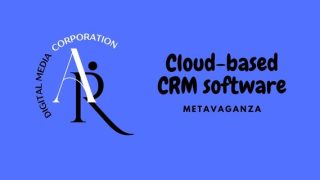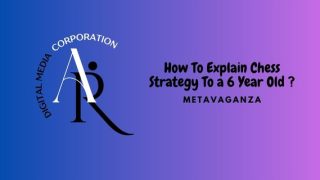CRM Software – In today’s highly competitive business landscape, effective marketing strategies are crucial for sustaining growth and gaining a competitive edge. Among the multitude of marketing approaches available, CRM (Customer Relationship Management) marketing has emerged as a game-changer.
By focusing on building and nurturing customer relationships, CRM marketing allows businesses to drive customer loyalty, increase conversions, and maximize revenue.
In this article, we delve into the depths of CRM marketing, exploring its benefits, strategies, and answering key questions to help you harness its potential for your business success.
The Significance of CRM Marketing
CRM marketing is a dynamic approach that centers around understanding and catering to the needs of customers. It involves employing technology, data analysis, and personalized communication to develop long-lasting customer relationships.
Related Artcle : CRM Software
By utilizing CRM systems, businesses can gather valuable customer data, track interactions, and create targeted marketing campaigns. The ultimate goal is to enhance customer experiences and foster loyalty, leading to increased customer retention and advocacy.
CRM Marketing Strategies
To effectively implement CRM marketing, businesses should adopt various strategies that align with their goals and target audience. Here are some proven strategies that can drive success:
1. Segmentation and Targeting: Identifying the Right Audience
To deliver personalized experiences, it’s vital to segment your customer base and target specific groups with tailored messages. By understanding your customers’ demographics, preferences, and behavior patterns, you can craft compelling marketing campaigns that resonate with their needs and aspirations.
2. Personalized Communication: Building Authentic Connections
One of the cornerstones of CRM marketing is personalized communication. Customers appreciate when businesses take the time to understand their individual preferences and engage with them on a personal level. Utilize data-driven insights to customize your messages, offers, and recommendations, making customers feel valued and understood.
3. Omnichannel Marketing: Seamless Customer Experiences
In today’s interconnected world, customers expect a seamless experience across multiple channels and touchpoints. Adopt an omnichannel approach by integrating your CRM system with various communication channels, such as email, social media, mobile apps, and live chat. This enables you to deliver consistent messaging and experiences throughout the customer journey.
4. Customer Data Analysis: Extracting Actionable Insights
CRM systems generate vast amounts of customer data. To derive maximum value, leverage analytics tools to extract actionable insights.
Analyze customer behavior patterns, purchase history, and engagement metrics to identify trends, preferences, and opportunities for improvement. These insights can inform your marketing strategies and help you make data-driven decisions.
5. Customer Retention and Loyalty Programs: Nurturing Relationships
Retaining existing customers is often more cost-effective than acquiring new ones. Implement loyalty programs and initiatives that incentivize repeat purchases, referrals, and engagement.
By rewarding customer loyalty, you reinforce their relationship with your brand and foster a sense of exclusivity and appreciation.
6. Continuous Improvement: Feedback and Adaptation
To excel in CRM marketing, it’s essential to embrace a culture of continuous improvement. Encourage customers to provide feedback through surveys, reviews, and social media interactions. Actively listen to their suggestions and concerns, and adapt your strategies accordingly.
By demonstrating a willingness to evolve based on customer input, you establish a customer-centric approach that drives long-term success.
FAQs
1. What is the role of CRM marketing in lead generation?
CRM marketing plays a crucial role in lead generation by providing businesses with insights into their prospects. By tracking and analyzing customer interactions, businesses can identify potential leads, personalize their approach, and nurture these leads until they are ready for conversion.
2. How can CRM marketing enhance customer retention?
CRM marketing enables businesses to better understand their customers and their evolving needs. By offering personalized experiences, targeted offers, and excellent customer service, businesses can enhance customer satisfaction and loyalty, increasing the likelihood of repeat purchases and long-term retention.
3. Can CRM marketing benefit small businesses?
Absolutely! CRM marketing is beneficial for businesses of all sizes. For small businesses, it helps create a competitive advantage by enabling personalized communication, building customer relationships, and maximizing limited resources.
4. Is CRM marketing only relevant for B2C businesses?
While CRM marketing is often associated with B2C businesses, its principles and strategies are equally applicable to B2B environments. Building strong customer relationships, understanding customer needs, and delivering personalized experiences are essential for both B2C and B2B success.
5. What technologies are commonly used in CRM marketing?
CRM marketing relies on various technologies, including CRM software platforms, marketing automation tools, data analytics solutions, and customer communication channels like email marketing software and social media platforms.
6. How long does it take to see results from CRM marketing efforts?
The timeline for seeing results from CRM marketing efforts can vary depending on factors such as the complexity of your CRM implementation, the size of your customer base, and the effectiveness of your strategies. Generally, businesses can start observing positive outcomes within a few months of consistent implementation.
Conclusion
CRM marketing has revolutionized the way businesses connect with their customers. By focusing on building and nurturing customer relationships, leveraging data-driven insights, and personalizing experiences, businesses can drive growth, enhance customer satisfaction, and foster long-term loyalty.
With the right strategies and technologies in place, CRM marketing can be a powerful tool for achieving business success in today’s highly competitive marketplace.
So, embrace the power of CRM marketing, adapt it to your unique business needs, and unlock the potential of your customer relationships for sustainable growth and profitability.





